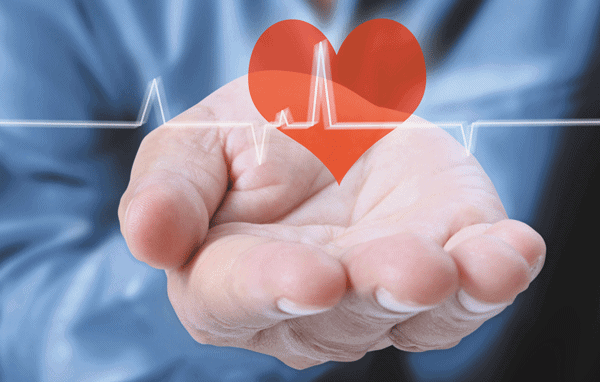
"Heart palpitations can be alarming, but are they dangerous? In the most literal sense, palpitations are simply an awareness of your heart beating, says Dr. William Stevenson, professor of medicine at Harvard-affiliated Brigham and Women’s Hospital. The most familiar trigger for palpitations is heavy exercise, such as when you pedal extra hard to summit the last computerized hill in your indoor cycling class."
"Although common, palpitations alarm many people, in part because they tend to come on unexpectedly," Harvard Health Publications reports. "Isolated palpitations typically occur when a small rush of adrenaline courses through your body, causing your heart to beat more forcefully than usual. These surges can be generated by a strong emotion such as excitement, fear, or anger. They also can come on after consuming a stimulant such as caffeine."
Palpitations could be on the minds of new patients. AudienceSCAN finds when it comes to health and wellness, 7.8% of adults intend or expect to pay for a cardiologist (heart doctor) in the next 12 months.
"The sensation of abnormal heartbeat can also be a warning sign of a heart rhythm problem. A sustained fast or irregular heart rhythm originating in either the upper or lower chambers can result in distressing symptoms such as lightheadedness, dizziness, or shortness of breath. At their most serious, these rhythm abnormalities may lead to complications such as stroke and even sudden death if the ventricles contract so chaotically that blood doesn’t move out of the heart. So if you start having palpitations or irregular heartbeats that you haven’t noticed before, it’s wise to get checked out, says Dr. Stevenson. This is especially important if you are having worrisome symptoms such as shortness of breath or chest pain."
Cardiologists should address fears about palpitations in marketing. There's an opportunity to inform potential patients with newspaper (print, online, mobile or tablet) ads, because AudienceSCAN reports 33% of Cardiologist Patients took action after reading them in the past month.
"Once serious causes have been ruled out, most people who have isolated palpitations simply need reassurance that nothing dire is happening, says Dr. Stevenson. If you’re still bothered by unexplained palpitations, start with simple things first. Low blood sugar can trigger palpitations, so make a point of eating regularly. Drinking plenty of fluids and getting enough sleep may also help. Since stress and anxiety are a source of palpitations in many people, breathing exercises, meditation, or other relaxation techniques may do the trick. Nicotine can cause palpitations, as can alcohol and over-the-counter decongestant medications that contain pseudoephedrine or phenylephrine."
Give this helpful advice to radio listeners, while encouraging them to visit the office if still concerned. 48% of Cardiologist Patients took action after hearing radio spots in the past year, AudienceSCAN reveals.
"When self-care measures aren’t enough, certain drugs may help. Beta blockers that quell the effects of adrenaline on the heart can successfully combat most types of fast heart rhythms. Some people may get relief with anti-anxiety medicines."
"If your ECG shows a particular type of abnormal heart rhythm, your doctor may suggest a procedure called catheter ablation to correct it. A thin tube (catheter) is guided into the heart, and a jolt of radiofrequency energy is applied to destroy a faulty electrical pathway in the heart muscle that is responsible for the erratic signaling. For potentially fatal rhythm abnormalities coming from the ventricles, an implantable cardiac defibrillator that resets those rhythms can be a lifesaver."
AudienceSCAN data is available as part of a subscription to AdMall for Agencies, or with the SalesFuel API. Media companies can access AudienceSCAN data through the AudienceSCAN Reports in AdMall.
